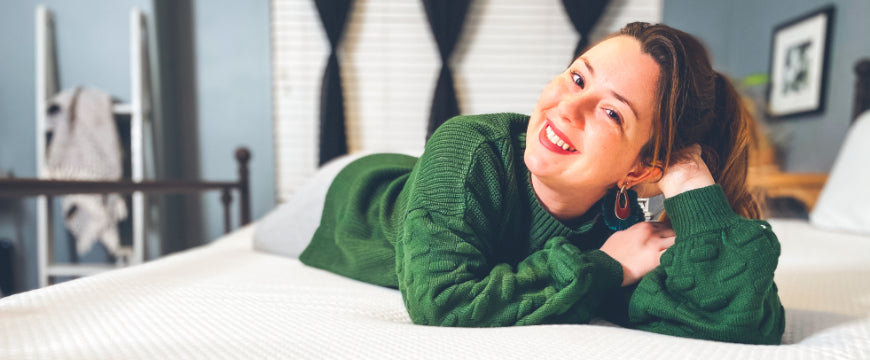
5 Ways Alcohol Affects your Sleep
Share
Have you planned your green outfit for St. Patrick’s Day yet? If so, that shouldn’t be the only plan you’ve got: think about how many drinks you’re going to have in relation to what you have to do that day, how early you have to sleep, and how early you have to wake up the next day. That’s because alcohol affects how sound your sleep is in ways beyond just helping you pass out early.
Even though drifting off in an alcohol-induced haze just feels so easy and natural, falling asleep is just a portion of your overall sleep. Studies have shown that the overall quality of sleep is negatively affected by alcohol, even if you’re falling asleep faster.
Here are 5 ways alcohol negatively affects your sleep:
1. It’ll make it too easy to wake up before you need to.
Alcohol is scientifically considered a depressant, inducing a deeper-than-usual sleep…during the first half of sleep. However, this effect slips off during the second half, leaving you in an even lighter stage of sleep. One that’s light enough to wake up from with the slightest trigger, such as birds chirping outside. If you fell asleep at 3 am after a wild night out but are waking up at 7 to your sober roommate vacuuming, you’re not getting much sleep at all unless you’re able to easily fall asleep again.
2. It can lower melatonin levels.
Alcohol has also been found to lower melatonin levels when consumed in the evening by 15-19%. Producing the right amount of melatonin levels at the right time is essential for maintaining your circadian rhythm. If you drink just enough to lower your melatonin levels but not enough to fall asleep, you might find yourself staying up later than usual.
3. It’ll make you really have to go to the bathroom.
If you’re trying to sleep, drinking a diuretic such as alcohol right before will just keep you tossing and turning, debating whether it’s worth it to get up and go to the bathroom or not.
4. It’ll cut off how much rejuvenating REM sleep you get.
Going back to point #1 – alcohol makes it easier for you to wake up in the second stage of sleep. Too easy, in fact. That means if you wake up and don’t go back to sleep, you’re losing a lot of that deep REM sleep that’s so necessary for your body to recover from the previous night’s shenanigans. REM sleep is necessary for memory consolidation, so if you’d like to remember your St. Patrick’s Day, don’t drink too much!
5. If you have sleep apnea, it might get worse.
Alcohol helps your muscles relax, which is another reason why it helps you fall asleep. While relaxed muscles sound calming, it’s not all perfect for those with sleep apnea. That’s because one of the relaxed muscles includes the individual’s throat muscles, which means even more difficulty breathing and louder snoring. Studies have even found that alcohol can increase the probability of developing sleep apnea by 25%.
